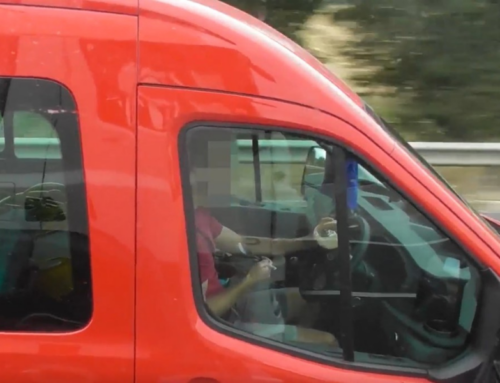March has heralded the launch of a new National Highways campaign, which urges lane hoggers and tailgaters to change their driving style. If you’re responsible for health and safety in your organisation, then this is something you can share with your drivers to help them develop safer driving habits.
Are your drivers guilty?
A recent survey carried out by Ipsos UK on behalf of National Highways, showed that nearly a third (32%) of drivers admitted to lane hogging, while one in four in the sample of 2,500 drivers have been guilty of tailgating, while driving on England’s motorways and major A roads.
The campaign – Little changes, change everything – is urging drivers to carefully consider their driving habits. It would seem timely – almost seven in ten adults in England (67%) said close following, or tailgating, is a serious problem on these types of roads.
Nearly three quarters (73%) of people said that if they personally were to drive too close to the vehicle in front, this would be likely to cause an accident. Around the same proportion (75%) said that if other drivers drive too close to their car, this would be likely to cause an accident.
What does the law say?
Lane hogging and tailgating both fall under the offence of careless driving. Police officers can hand out on-the-spot fines of £100 and three penalty points.
Rod Dennis, RAC road safety spokesperson said:
“Simply put, middle lane hogging and tailgating are far more than mere annoyances for drivers – these actions put everyone on the roads at risk. Closely following another motorist, for instance, could easily result in a serious collision should the driver ahead need to brake sharply for any reason. The fact nearly one-in-four drivers surveyed admit to doing so on some of England’s fastest and busiest roads is frightening.
“Some offenders might find these habits hard to kick, which is why this campaign is so important. By understanding how we choose to drive affects others, we can each make a real difference to the safety of our roads.”
You should also be aware that under the Health and Safety at Work Act 1974 and other driving for work laws, employers have a responsibility to take appropriate action to protect the health and safety of their employees and those who may be affected by their work. In other words, your organisation must be able to prove how you are fulfilling your legal duty of care to your drivers and other road users. If your drivers have poor driving habits, the risk to themselves and other road users is increased.
So, any organisation with employees who drive needs to have:
-
- Effective driver inductions and training
- A driving for work risk assessment
- A compliant and comprehensive driving for work policy
Driver behaviour – time to think
Lane hogging can disrupt the flow of traffic leading to congestion, and cause frustration in other road users. It can also lead to other drivers undertaking, with all the dangers that type of driver behaviour brings.
Most of us know that the middle lane should be used for overtaking, letting traffic onto the road, and for when traffic conditions do not allow for driving in the left lane. Why then, do so many drivers choose to ignore this fact?
When it comes to tailgating, you may not think it is as risky as other driving behaviours, but it’s a contributing factor in 1 in 8 motorway collisions.
The Highway Code says drivers should “allow at least a two second gap between them and the vehicle in front on roads carrying faster moving traffic”.
This time is crucial as it give drivers the two seconds they need for thinking and stopping. In bad weather, when it’s raining, your drivers need to at least double that gap to ensure they can stop in wet conditions.
Making our roads safer
The hope is that this National Highways campaign will raise awareness that by making little changes when you drive, you can make a big difference by helping to reduce congestion, avoiding collisions and making journeys safer – all great reasons to ensure your drivers are regularly reminded that by adapting their driving style with little changes like these, they’re more likely to get home safely.






